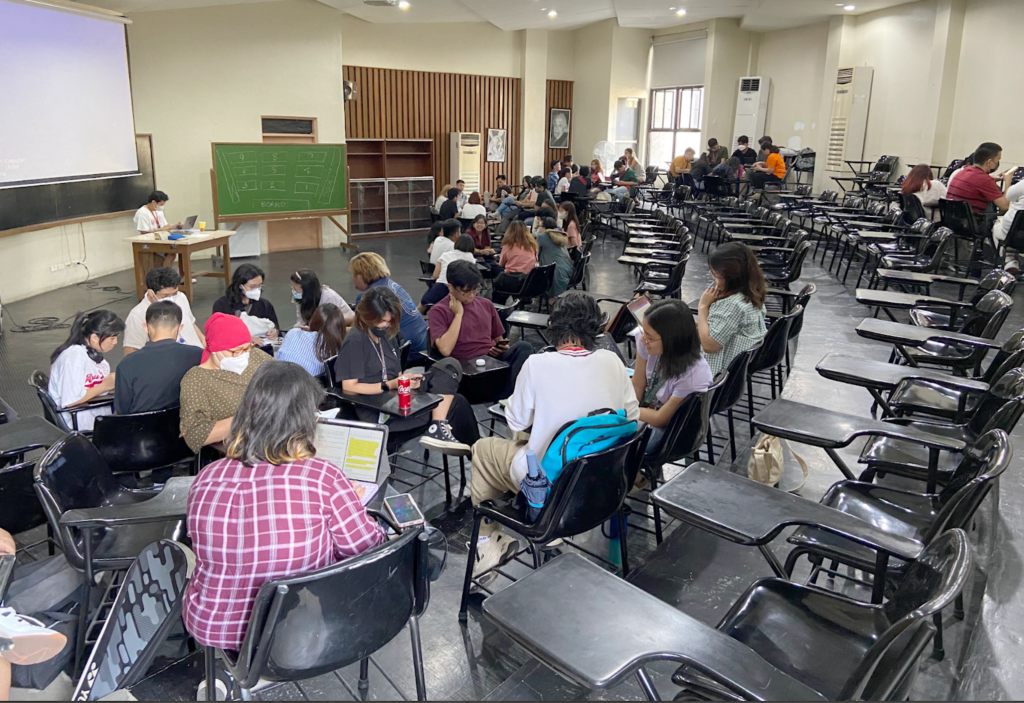Apart from the piling academic tasks students endure daily, societal pressure and other responsibilities outside the academe may affect students’ physical and mental health.
To mitigate these concerns, College of Science students from the University of the Philippines-Diliman voiced their concerns in the student-led CS-wide consultation organized by the CS Student Council on 12 February at the National Institute of Physics Auditorium.
Among the concerns raised were “tight academic calendar schedules, ineffective reading breaks and slow responses to mental health.” These negatively affected the students’ overall welfare and learning experience.
CSSC chairperson Zedwin Sta. Monica acknowledged the students’ concerns about crafting more effective policies and pushing for a more proactive system. She said, “It’s important to gather these sentiments as we gear forward to a much better system and policies in the future.”
A collective sentiment among students was the hectic academic calendar, which made it difficult for students to go home to their provinces since it would be expensive. At the same time, it would be time-consuming as they also have to prioritize their academic requirements on time.
Another issue arising from the tight academic calendar is the “one-week reading break.” The reading break, which should be a week for students to recuperate and recharge from academics, becomes more mentally taxing for students because the allotted break is now spent on finishing deadlines and studying for exams.
Students also raised concerns about more efficient and faster psychological services from the university.
With 55 undergraduate and graduate students from different institutions participating in the consultation, the discussion has been deemed “successful.”
“The discussion was successful because the participants are very insightful and participative in their focus group discussions,” Sta. Monica said.
“We also plan to aid the CS Admin, should they craft position papers, amendments to the policies,” the CSSC chairperson added.
